12 start with F start with F
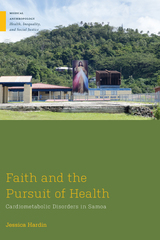
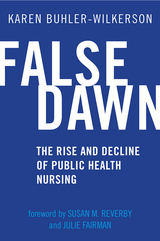
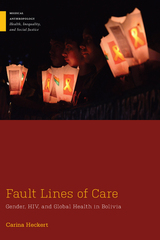
In Fault Lines of Care, Heckert provides a detailed examination of the effects of global health and governmental policy decisions on the everyday lives of people living with HIV in Santa Cruz. She focuses on the gendered dynamics that play a role in the development and implementation of HIV care programs and shows how decisions made from above impact what happens on the ground.
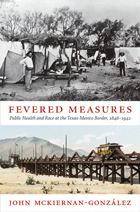

For far too long, Southeast Asia has been treated as a static backdrop for the exploits and discoveries of Western biomedical doctors. Yet, Southeast Asians have been vital to the significant developments in the prevention and treatment of diseases that have taken place in the region and beyond. Many of the institutions and people that shaped subsequent responses to outbreaks, epidemics, and pandemics first began their work in Southeast Asia during the Cold War. The diversity of approaches to health and medicine during that era also reminds us of the possibilities, and limits, of human intervention in the face of political, social, economic, and microbial realities. The people and places of Southeast Asia have provided clinical trials for different health regimes. Fighting for Health highlights new perspectives and methods that have evolved from research presented at regional conferences, including the History of Medicine in Southeast Asia (HOMSEA) series. These insights serve to challenge dominant models of the medical humanities.

Among the most serious challenges facing health systems in lower and middle income countries is establishing efficient, fair, and sustainable financing mechanisms that offer universal protection. Lack of financial protection forces families to suffer the burden not only of illness but also of economic ruin and impoverishment. In Latin America, financial protection for health continues to be segmented and fragmented; health is mainly financed through out-of-pocket payments.
Financing Health in Latin America presents new and important insight into the crucial issue of financial protection in health systems. The book analyzes the level and determinants of catastrophic health expenditures among households in Argentina, Brazil, Chile, Colombia, Costa Rica, the Dominican Republic, Mexico, and Peru, applying both descriptive and econometric analyses. The results demonstrate that out-of-pocket health spending is pushing large segments of the population into impoverishment and that the poorest and most vulnerable segments of the population are most at risk of financial catastrophe. This work is a product of the collaboration between more than 25 researchers and 18 institutions associated with the Research for Health Financing in Latin America and the Caribbean Network, with support from the International Development Research Centre of Canada.
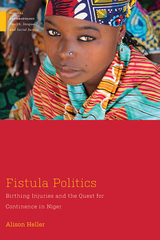
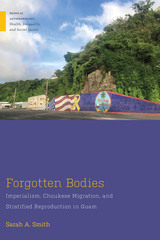
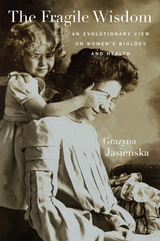
So many women who do everything right to stay healthy still wind up with breast cancer, heart disease, or osteoporosis. In The Fragile Wisdom, Grazyna Jasienska provides an evolutionary perspective on the puzzle of why disease prevention among women is so frustratingly difficult. Modern women, she shows, are the unlucky victims of their own bodies’ conflict of interest between reproductive fitness and life-long health.
The crux of the problem is that women’s physiology has evolved to facilitate reproduction, not to reduce disease risk. Any trait—no matter how detrimental to health in the post-reproductive period—is more likely to be preserved in the next generation if it increases the chance of giving birth to offspring who will themselves survive to reproductive age. To take just one example, genes that produce high levels of estrogen are a boon to fertility, even as they raise the risk of breast cancer in mothers and their daughters.
Jasienska argues that a mismatch between modern lifestyles and the Stone Age physiology that evolution has bequeathed to every woman exacerbates health problems. She looks at women’s mechanisms for coping with genetic inheritance and at the impact of environment on health. Warning against the false hope gene therapy inspires, Jasienska makes a compelling case that our only avenue to a healthy life is prevention programs informed by evolutionary understanding and custom-fitted to each woman’s developmental and reproductive history.

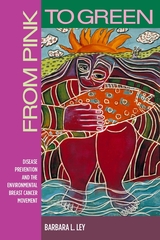
Challenging the broader cultural milieu of pink ribbon symbolism and breast cancer "awareness" campaigns, this movement has grown from a handful of community-based organizations into a national entity, shaping the cultural, political, and public health landscape. Much of the activists' everyday work revolves around describing how the so called "cancer industry" downplays possible environmental links to protect their political and economic interests and they demand that the public play a role in scientific, policy, and public health decision-making to build a new framework of breast cancer prevention.
From Pink to Green successfully explores the intersection between breast cancer activism and the environmental health sciences, incorporating public and scientific debates as well as policy implications to public health and environmental agendas.

Americans are understandably concerned about the runaway costs of medical care and the fact that one citizen out of seven is without health insurance coverage. Solving these problems is a top priority for the Clinton administration, but as Victor Fuchs shows, the task is enormously complex. In this book Fuchs, America's foremost health economist, provides the reader with the necessary concepts, facts, and analyses to comprehend the complicated issues of health policy. He shows why health care reform that benefits society as a whole will unavoidably burden certain individuals and groups.
Fuchs addresses such central questions as cost containment, managed competition, technology assessment, poverty and health, children's health, and national health insurance. The future of U.S. health policy, he argues, is tightly linked to three basic questions; First, how can we disengage health insurance from employment? Second, how can we tame technological change in health care? And finally how can we cope with the runaway medical costs of an aging society?
READERS
Browse our collection.
PUBLISHERS
See BiblioVault's publisher services.
STUDENT SERVICES
Files for college accessibility offices.
UChicago Accessibility Resources
home | accessibility | search | about | contact us
BiblioVault ® 2001 - 2024
The University of Chicago Press









